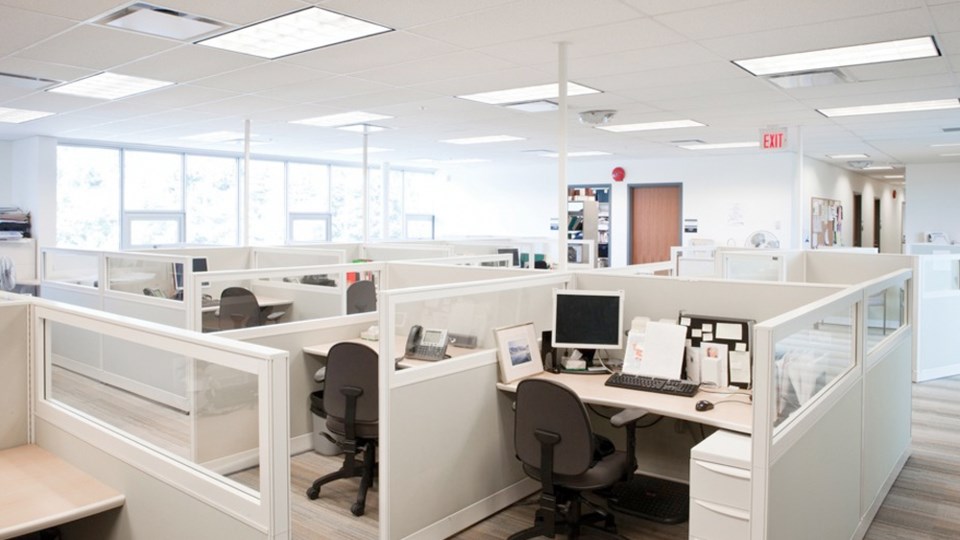As we moved through the summer of 2021, and Canadians and British Columbians became more convinced that the worst of the COVID-19 pandemic was behind us, discussions about the “great restart” began to take shape.
At the time, governments and health authorities were confident that the efforts to vaccinate the population would pay off, and that the workplaces that were inaccessible would reopen.
No industry can safely say that it has been unaffected by the pandemic. Restaurants acquired Plexiglas to shield diners from being in close contact with each other. Gyms and theatres implemented new cleaning protocols. Public opinion research also saw qualitative researchers pivoting to online tools, as the notion of spending two hours in a room with 12 people to discuss a policy or product became unattractive.
In March 2021, Research Co. and Glacier Media took the pulse of British Columbia’s workers to gauge their expectations about the future of the office. We were curious to see if the enjoyment many felt about turning their kitchen table into an office during the pandemic would lead them to seek opportunities where commuting would no longer be necessary.
In our latest survey, conducted earlier this month, we continue to see more than half of the province’s workforce (54%) stating that they have had to labour from their home and away from their usual office. Again, those aged 18 to 34 are more likely to say they have been away from the workplace (65%) than their counterparts aged 35 to 54 (52%) and aged 55 and over (45%).
The emergence of the Omicron variant has affected the views of employed British Columbians. The hopeful idea of being able to chat around the water cooler again has given way to a larger proportion of people who would work from home consistently if they are offered the chance.
Some elements of office life are not expected to return in the same form. About two in five employed British Columbians say they do not think they will see more in-person staff meetings (43%), travel between offices (39%) and in-person business development meetings (38%) once the pandemic is over. Businesses may be realizing that the virtual tools that the pandemic compelled them to use can still be part of daily operations.
If anything, employed British Columbians are more likely to think that the components of their job that were not present in 2019 will remain once COVID-19 effectively ends. Almost half (46%) believe they will continue to rely more on virtual communications between offices, and similar proportions expect more virtual staff meetings held through audio or video conferencing (45%) and more virtual business development meetings (also 45%).
A significant number of employees remain in the dark about the future. Our survey shows that 38% of British Columbians who are away from their workplace have not heard anything from their employer about post-pandemic plans to either return to the office or carry on working from home. This proportion rises to 46% among those in the lowest income bracket.
One matter that has not seen a dramatic shift is the expectation that the home office will still be available when the pandemic is officially behind us. In the latest survey, only 11% of employed British Columbians who have worked or are currently working from home expect a full return to the office, up one point since February. More than two in five (41%, up eight points) believe they will be able to work from home once or twice a week, while one-third (34%, down four points) think their home will continue to be their office three days a week or more.
Employers were already put on notice last year about the possibility of their workforce leaving to pursue gigs that afford them more freedom to work from home. These feelings have become more prevalent as the pandemic continues. This month, almost three in five British Columbian “home workers” (58%) acknowledge that they are likely to leave their current post if their supervisors do not allow them to work from home as much as they want to, up nine points since February and reaching 62% across Metro Vancouver.
We also see an increase in the propensity of home workers to seek a different job in their own metropolitan area (64%, up eight points), for a different company headquartered in British Columbia (57%, up three points) and even for a business located in another Canadian province (45%, up six points). The challenge for human resources departments has not subsided with time. If anything, as the weeks working from home have turned into months, more people—especially the youngest adults – are ready to envision a future where a paycheque can be earned without commutes.
Mario Canseco is president of Research Co.
Results are based on an online study conducted on January 6 and January 7 among 700 adults who work in British Columbia. The data has been statistically weighted according to Canadian census figures for age, gender and region in British Columbia. The margin of error, which measures sample variability, is plus or minus 3.7 percentage points, 19 times out of 20.



